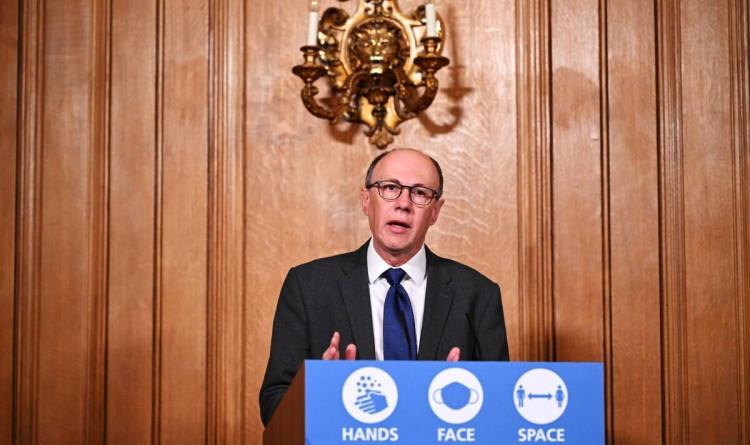After eight years as the most senior NHS doctor, Professor Sir Stephen Powis has announced his retirement. What can we learn from his time as NHS England’s medical director?
Those TV moments where it seems the whole country tunes in to watch, are becoming more and more rare.
But one of the quirks of the otherwise isolating Covid pandemic was that it actually brought us together in many ways, not least in the fact that millions and millions of households would turn on the TV at 4pm each day to find out the latest facts and stats, directly from Downing Street.
These daily news conferences were an essential tool of public health: the closest thing we had to virus treatment, in the early days of the pandemic.
The person outside of government who appeared most at these press conferences, Professor Sir Stephen Powis, overnight became a nationally recognised figure.
Not only that, as the resident medic, Steve and his peers became a uniquely precious source of information not just about public health but school closures, travel plans, BBQ guest lists and premier league football clubs' training regimes.
As part of the NHS' communications team at that time, I worked closely with Steve, who confirmed his retirement today.
Covid was a case study of why information about health is so controversial, so contested and ultimately so crucial to life as we know it.
As the medical director of the NHS, Steve - Stephen in media quotes, Steve in normal life, for reasons I never got to the bottom of - had to walk a tightrope every day in that wood-panelled room in number ten.
For an hour on live TV with millions of bored and cooped up families watching, many of them grieving or worried for their safety, the media medics had to communicate reassurance with responsibility, complexity with clarity and policy without being political.
As well as being a fundamentally decent, humble person, Steve was so professional and effective during that period, that it shows in even starker light some of the challenges that public health communicators face, five years on.
With many established facts now contested, polarised opinions and an increasingly fragmented media landscape, it is becoming harder and harder for people simply to identify, let alone trust, content they see.
In healthcare, this trust premium - whether on a one to one basis in a GP surgery or on national television - is essential at all times, but in a moment of crisis all the more so.
Without either defending or criticising the policies of the government or the response of the NHS, one clear lesson from the pandemic, half a decade later, is that sound public health communication is a non-negotiable building block of society.
During an era when disinformation and distrust are so prevalent, anyone involved in health communications has to find that blend of credibility and clarity to get our message across: Steve’s example is one we should all follow.






